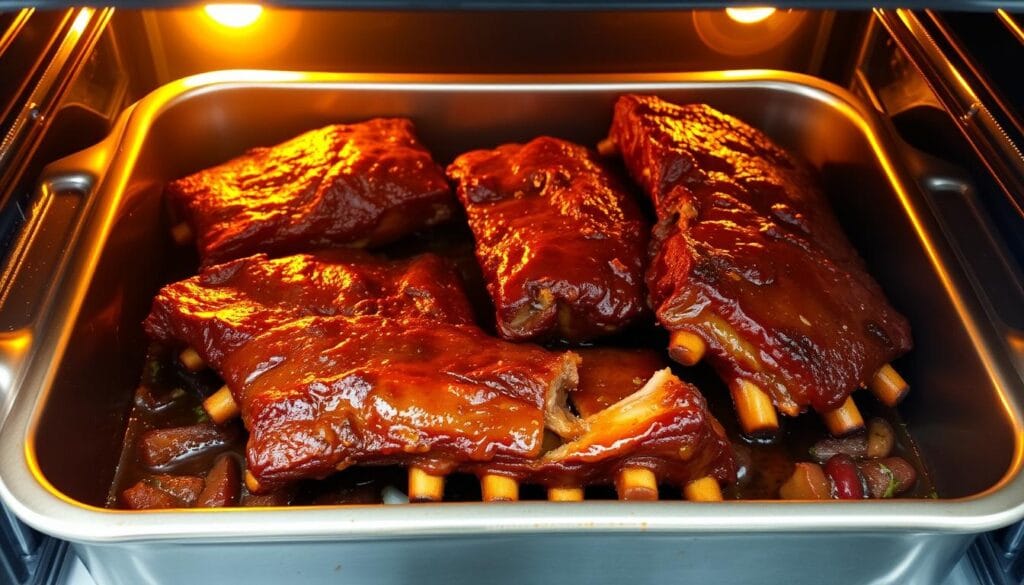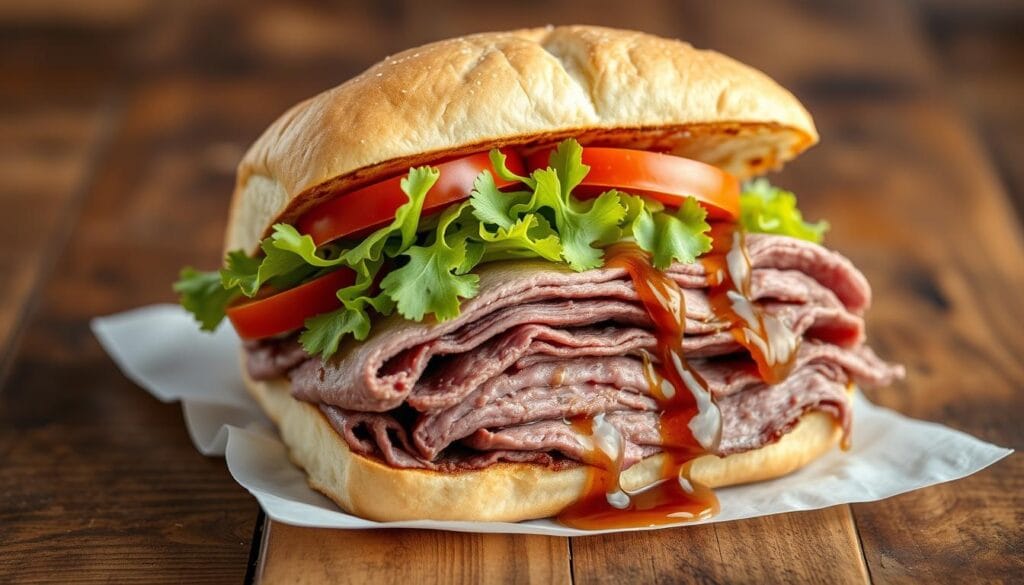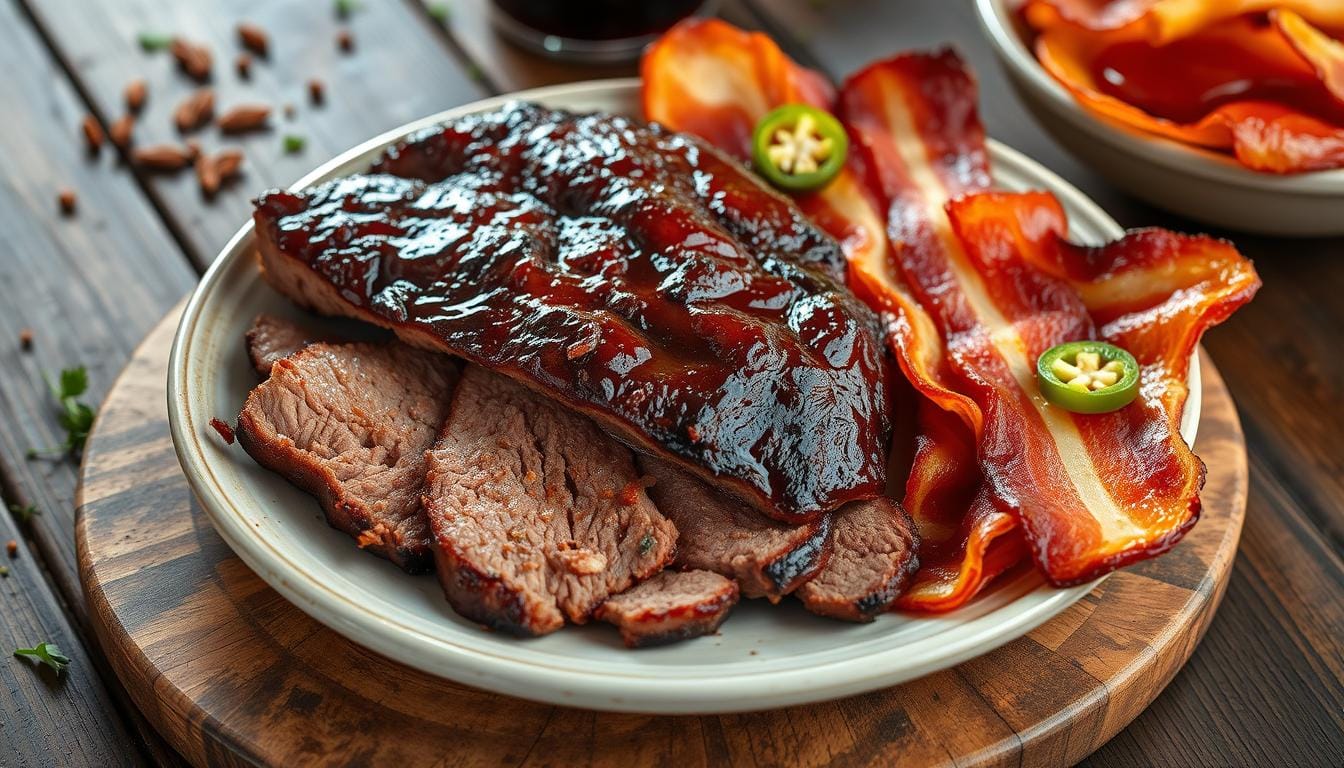Remember the smell of a summer barbecue? The sizzle of beef hitting a hot grill, the aroma of smoke and spices filling the air, and the anticipation of that first, perfect bite. It’s more than just a meal; it’s a memory, a gathering of friends and family, and a simple joy that defines a season.
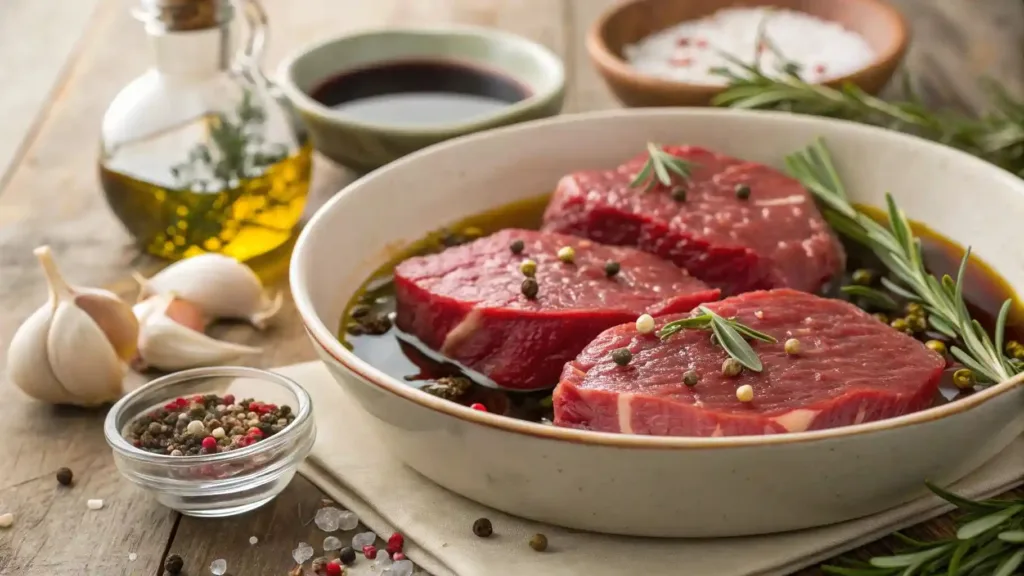
But what separates a good grilled steak from a truly legendary one? Often, it’s a secret that’s been marinating in the background all along. We’ve all had that dry, bland steak that just didn’t live up to the hype. This guide is for every home grillmaster who wants to elevate their beef, turning a simple cut of meat into a tender, juicy, and unforgettable masterpiece. Let’s unlock the secrets to the best beef marinade methods for grilling and make your next cookout one for the books.
You see, the magic of a phenomenal grilled steak isn’t just about the cooking; it’s about the preparation. It’s about taking the time to infuse your meat with layers of flavor and tenderness before it ever touches the heat. This process transforms a good piece of beef into a culinary experience. You’re not just cooking; you’re creating.
You’re building a foundation of taste that will reward you and your guests with every single bite. By understanding the principles behind a great marinade, you can move beyond following recipes and start crafting your own unique creations. Your journey to becoming the undisputed grill champion starts right here.
The Science Behind the Sizzle: Why Marinades Work
Before we get into the “how,” it’s crucial to understand the “why.” A marinade isn’t just a bath for your beef; it’s a carefully balanced chemical reaction that does three critical things for your meat: it adds flavor, it introduces moisture, and it initiates the tenderization process. Neglecting any of these three pillars is a common mistake that separates the amateurs from the pros.
When you dip your beef into a well-crafted marinade, you’re triggering a process called osmosis. The salt in your marinade draws out some of the meat’s natural moisture, but then the surrounding liquid is absorbed back into the fibers, carrying all those incredible flavors with it. This is how you achieve that deep, pervasive taste that goes beyond the surface. Furthermore, the acid and enzymes in your marinade begin to gently break down the tough muscle fibers and connective tissues. This is the secret to taking a potentially tough cut of beef and making it unbelievably tender. Without this step, even the most expensive cuts can fall short of their potential. It’s the pre-game warm-up that ensures your steak is ready to perform at its peak on the grill.
Think of it this way: the more you understand the science, the better you can manipulate the ingredients to achieve your desired result. You’re becoming a food chemist in your own kitchen, meticulously crafting a formula for success. The result is a steak that is not only delicious but also consistently tender and moist, regardless of the cut you’re working with.
The Three Pillars of a Great Beef Marinade
A truly exceptional marinade isn’t a random collection of ingredients. It’s built upon a foundation of three key components, each playing a distinct and vital role in transforming your beef. By mastering these three elements, you can create an endless variety of the best beef marinade methods for grilling.
The Acid Component: Your Tenderizing Agent
This is the component that does the heavy lifting when it comes to tenderization. The acids in a marinade work to denature the proteins in the beef, which means they start to unravel and become more tender. This is a delicate process, so you must choose your acid wisely and, most importantly, not overdo it. Too much acid for too long will turn your beef into a mushy, unpleasant mess. The goal is a gentle, gradual breakdown, not a full-on disintegration.
List of Common Acids for Your Beef Marinade:
- Lemon or Lime Juice: These citrus juices bring a bright, fresh flavor that is perfect for balancing richer spices.
- Vinegar: Options like balsamic, red wine, or apple cider vinegar offer a more complex flavor profile. Balsamic adds a touch of sweetness, while red wine vinegar provides a sharp, robust tang.
- Yogurt or Buttermilk: While less acidic than citrus or vinegar, these dairy products contain lactic acid and enzymes that are excellent for gentle tenderization, leaving your meat incredibly moist. This is a fantastic option if you’re worried about over-marinating.
The key is to select an acid that complements your desired final flavor. Do you want something tangy and bright? Go with citrus. Are you aiming for a deeper, more savory profile? A red wine vinegar is your best friend.
The Oil Base: The Flavor Carrier and Moisture Protector
Oil serves as the critical bridge between your marinade and your beef. It’s an essential component for several reasons. First, many of the most potent flavor compounds—from garlic to rosemary—are fat-soluble.
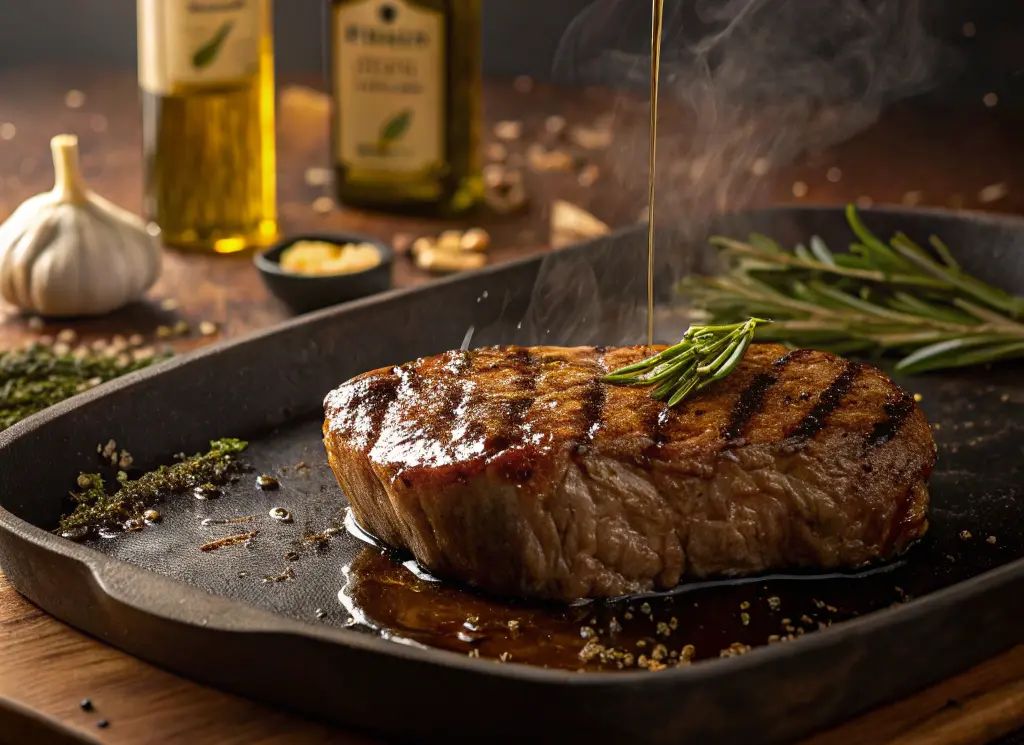
The oil acts as a carrier, helping these flavors penetrate deeper into the meat. Secondly, oil helps to seal in moisture and prevents your beef from drying out on the high heat of the grill. Lastly, it creates a non-stick surface, ensuring your beautifully marinated steak doesn’t get stuck to the grates.
List of Recommended Oils for Grilling Marinades:
- Olive Oil: A classic choice. Extra virgin olive oil offers a rich, fruity flavor, while a lighter olive oil provides a more neutral base.
- Vegetable or Canola Oil: These are excellent neutral oils that won’t interfere with the other flavors in your marinade. They have a high smoke point, making them ideal for grilling.
- Sesame Oil: A powerful, aromatic oil that is perfect for creating an Asian-inspired flavor profile. Use it sparingly, as a little goes a long way.
The right oil doesn’t just prevent sticking; it completes the entire flavor delivery system of your marinade.
The Seasoning & Flavor Builders: The Soul of the Marinade
This is where you get to truly express yourself and get creative. The seasonings are the heart and soul of your marinade, giving it a unique character. This is where you can layer flavors to create something truly memorable. Don’t be afraid to experiment, combining different elements to find your perfect blend.
Bulleted list of flavor categories to inspire your next creation:
- Herbs: Fresh herbs like rosemary, thyme, and oregano infuse a classic, earthy aroma. Dried herbs can also work well, but you may need to use a bit less.
- Aromatics: Minced garlic and chopped onion are non-negotiable for many. Ginger adds a spicy kick, while shallots provide a milder, more delicate onion flavor.
- Spices: Paprika (smoked or sweet), cumin, and chili powder can create a smoky, robust profile. Black pepper is a must, and red pepper flakes can add a layer of heat.
- Umami: For that savory, mouth-watering depth, ingredients like soy sauce, Worcestershire sauce, and even a dash of fish sauce are irreplaceable. These ingredients provide a richness that rounds out the entire flavor profile.
- Sweetness: A little bit of brown sugar, honey, or maple syrup can work wonders. It not only balances the acidity but also helps the beef caramelize beautifully on the grill, creating that coveted, crusty exterior.
By thoughtfully combining these components, you move from a simple seasoning to a complex and compelling flavor journey for your beef.
Top Beef Marinade Recipes for Grilling
Now that you understand the fundamental principles, let’s put them into practice with a few proven recipes. These recipes serve as a fantastic starting point, but remember, the goal is for you to eventually adapt and personalize them to your own taste.
Classic Steakhouse Marinade
This recipe delivers a timeless, savory flavor that evokes the best of a high-end steakhouse. It’s simple, effective, and perfect for nearly any cut of beef.
- Ingredients:
- 1/2 cup olive oil
- 1/4 cup soy sauce
- 2 tablespoons Worcestershire sauce
- 2 cloves garlic, minced
- 1 tablespoon Dijon mustard
- 1 tablespoon fresh rosemary, chopped
- 1 teaspoon black pepper
- 1/2 teaspoon red pepper flakes (optional)
- Method:
- Combine all ingredients in a bowl and whisk thoroughly.
- Place your beef in a resealable plastic bag or a non-reactive dish.
- Pour the marinade over the beef, ensuring it is completely coated.
- Seal the bag, squeezing out as much air as possible, and refrigerate for 2 to 6 hours.
Asian-Inspired Beef Marinade
If you’re looking for something with a bit of a kick and a savory-sweet profile, this marinade is a perfect fit. It works wonders on thinner cuts like flank steak or skirt steak.
- Ingredients:
- 1/3 cup soy sauce
- 2 tablespoons sesame oil
- 1 tablespoon rice vinegar
- 1 tablespoon honey or brown sugar
- 1 tablespoon fresh ginger, grated
- 2 cloves garlic, minced
- 1 green onion, chopped
- Method:
- In a small bowl, combine soy sauce, sesame oil, rice vinegar, and honey. Whisk until the sweetener is dissolved.
- Stir in the grated ginger, minced garlic, and chopped green onion.
- Marinate your beef for 1 to 4 hours in the refrigerator.
Smoky BBQ Marinade
For those who crave that deep, smoky, and slightly spicy flavor of a true barbecue, this recipe is a must-try. It’s particularly good for tougher cuts that benefit from a longer marination.
- Ingredients:
- 1/2 cup apple cider vinegar
- 1/4 cup vegetable oil
- 2 tablespoons brown sugar
- 1 tablespoon smoked paprika
- 1 tablespoon chili powder
- 1 teaspoon onion powder
- 1 teaspoon black pepper
- 1/2 teaspoon liquid smoke (optional, but highly recommended)
- Method:
- Whisk the vinegar, oil, and brown sugar together in a bowl until the sugar dissolves.
- Add the smoked paprika, chili powder, onion powder, and black pepper. Stir to combine.
- If using, add the liquid smoke.
- Marinate your beef for 6 to 12 hours for the best results.
The Art of Marinating: Best Practices for Optimal Results
A great recipe is only part of the equation. The way you apply your marinade and handle your beef is just as important. These are the pro tips that will elevate your results from good to exceptional.
How Long Should You Marinate Beef for Grilling?
This is perhaps the most common question and a crucial one. The correct marinating time depends entirely on the cut of beef you are using and the type of marinade.
- For Tender Cuts (e.g., Filet Mignon, Ribeye): These cuts are already incredibly tender. Your goal is purely to add flavor. You can marinate for as little as 30 minutes or up to 2 hours. Any longer, and you risk the delicate texture becoming compromised.
- For Moderate Cuts (e.g., Sirloin, New York Strip): These cuts benefit from both flavor and a bit of tenderization. A sweet spot is between 2 to 6 hours. This timeframe allows the flavors to penetrate and the acid to work its magic without overdoing it.
- For Tougher Cuts (e.g., Flank, Skirt, Brisket): These are the cuts that truly shine with a proper marinade. They require a longer soak to break down those tougher fibers. Marinate for a minimum of 6 hours, and you can safely go up to 24 hours. Anything beyond that, however, and you’re tempting fate with a mushy texture.
Always remember, a longer marination time isn’t always better. You must respect the cut of meat and the potency of your marinade.
Marinating Safety and Storage
Food safety is paramount. Taking the right precautions ensures that your delicious marinade doesn’t lead to any unwanted issues.
- Always use a non-reactive container: Acidic marinades can react with metal, imparting a metallic taste to your food. Use glass, ceramic, or a resealable plastic bag.
- Refrigerate your beef: Marinating at room temperature is a fast track to bacterial growth. The entire process must take place in the refrigerator.
- Discard the used marinade: Once your raw beef has been soaking in the marinade, that liquid is no longer safe to consume. Never, ever, use it as a finishing sauce or a baste for your cooked meat. If you want to use some of the marinade as a sauce, set a portion aside before you add the raw beef.
By following these simple rules, you’re not only ensuring a delicious meal but also a safe one.
Conclusion: Your Grill, Your Rules
You are now equipped with the knowledge and tools to transform your grilling game forever. We’ve explored the science, demystified the components of a great marinade, and provided you with proven recipes and best practices. The journey from a good cook to a great one is about understanding the fundamentals and then making them your own.
The next time you fire up your grill, don’t just throw a steak on the grates. Take a moment to think about the flavor profile you want to achieve. Mix and match ingredients. Experiment with different marinating times for different cuts. The secret to the best beef marinade methods for grilling isn’t a single recipe; it’s the confidence to create, the willingness to experiment, and the understanding of the principles that make it all work. Go forth and create a steak that everyone will remember.
Now that you have these recipes and techniques in your arsenal, what’s stopping you from creating your own legendary steak? Share your favorite marinade combinations in the comments below and let’s get inspired together!
Frequently Asked Questions (FAQ)
What is the best beef marinade for grilling to make steak tender?
The most effective marinades for tenderizing tough cuts of beef are those that contain both a mild acid (like yogurt or buttermilk) and enzymes (found in ingredients like ginger or papaya). For most home cooks, a marinade with a base of red wine vinegar or soy sauce, combined with aromatics like garlic and ginger, is a fantastic and reliable option for achieving tenderness.
Can I use the same marinade as a sauce?
Absolutely not. For food safety reasons, a marinade that has been in contact with raw meat should be discarded. It can harbor bacteria that could make you sick. If you want to use some of the marinade as a sauce, simply set a portion of the fresh, un-used liquid aside before you introduce your raw beef to the mix.
How do you add flavor to beef before grilling?
Beyond a best beef marinade for grilling, you have several options for adding flavor. A simple dry rub made of salt, pepper, and your favorite spices can create an incredible crust. You can also finish your steak with a pat of compound butter (butter mixed with herbs, garlic, or spices) right off the grill for an extra layer of richness and flavor.
Does marinating meat make it taste better?
Yes, without a doubt. Marinating is one of the most effective ways to infuse a piece of beef with deep, complex flavors that go beyond just the surface. It’s also an excellent method for adding moisture and tenderizing tougher cuts, resulting in a more succulent, flavorful, and overall enjoyable dining experience.
